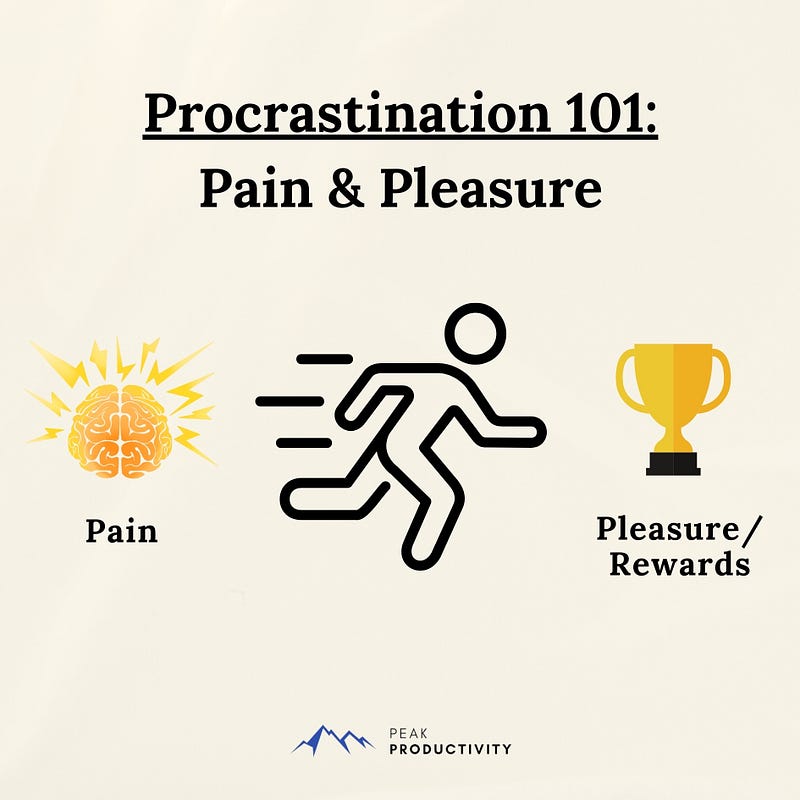Understanding the True Reasons Behind Procrastination
Written on
Chapter 1: The Nature of Procrastination
Procrastination is a common challenge that nearly everyone faces. We often make plans to tackle tasks, convince ourselves that we will do them, or recognize the necessity of completing them, yet we still fail to follow through.
Instead of outright abandoning our responsibilities, we deceive ourselves into believing we will start tomorrow or at a later time. However, when that time comes, we find ourselves repeating the same cycle of postponement. This pattern is what makes procrastination particularly perilous. We frequently convince ourselves that our future selves will be more industrious or disciplined than we are at present, but this is seldom true.
To truly address procrastination, it’s essential to explore its root causes. In this discussion, we’ll uncover the genuine reasons behind procrastination, which extend beyond mere motivation or self-discipline.
In this insightful video, Adam Grant explores the psychological underpinnings of procrastination and offers strategies to overcome it.
Section 1.1: Procrastination and Emotional Avoidance
Research indicates that our brains are wired to evade pain and gravitate toward pleasure, encompassing both physical and psychological discomfort. Consider the uncomfortable emotions that often accompany tasks: boredom, anxiety, stress, and frustration.
These feelings prompt our brains to devise clever excuses to delay engaging in activities that elicit discomfort.

The challenge lies in the fact that many of our responsibilities tend to trigger these unpleasant emotions. For instance, tackling a complex work project might evoke stress and frustration, while studying for a tedious exam could lead to boredom.
Because our brains instinctively avoid psychological pain, they encourage us to defer these tasks, promising to address them tomorrow or later. In the short term, procrastination might seem like an emotional relief, allowing us to escape the discomfort of the task at hand.
Ultimately, procrastination is largely an emotional dilemma: when the negative feelings linked to a task surpass the positive ones, we are more likely to postpone action. Activities that bring joy—like playing video games or watching a show—generate more positive emotions than negative ones, making procrastination less likely.
Section 1.2: Recognizing Uncomfortable Emotions
To combat procrastination, it’s vital to identify the uncomfortable emotions associated with a task. Gaining awareness can diminish the control these feelings have over us.
For instance, if you’ve been intending to improve your fitness but have delayed going to the gym, consider the emotions you connect to that activity. Perhaps you feel intimidated by unfamiliar equipment or uncertain about proper exercise techniques. Recognizing these feelings can help you find solutions or prepare for the discomfort.

Here are some approaches to tackle this issue:
- Seek practical ways to lessen uncomfortable feelings (e.g., watching fitness tutorials or hiring a trainer).
- Accept that the initial weeks at the gym may feel overwhelming, which can help diminish the power of those emotions.
- Continue to procrastinate (not recommended).
In short, if you find yourself delaying a goal or task, reflect on the uncomfortable feelings tied to it. Awareness is the first step toward meaningful change.
Chapter 2: Shifting Perspectives on Pain
This video delves into the surprising truths about procrastination and presents alternative perspectives on managing it effectively.
Effective individuals, like anyone else, are driven by the desire to avoid pain and seek rewards. However, they adopt a longer-term view.
While procrastinators focus on immediate discomfort, high achievers consider future consequences. For instance, skipping a workout may spare you short-term effort, but over time it can lead to chronic fatigue and health issues. Similarly, delaying exam preparation might help you avoid boredom now, but can result in late-night cramming and anxiety later.
Ultimately, pain is an unavoidable aspect of life. As Jim Rohn noted: “We must all suffer from one of two pains: the pain of discipline or the pain of regret.” The distinction lies in the type of pain we choose to endure:
- Short-Term Pain: Effort, discomfort, self-doubt, fear, stress, etc.
- Future Pain: Unfulfilled goals, missed opportunities, regret, health issues, etc.
Choosing the short-term pain of action ultimately yields benefits, while postponing tasks leads to future regrets. Whenever you feel the urge to procrastinate, think about the long-term effects on your future self. Accepting short-term discomfort is a necessary step toward achieving a fulfilling life.